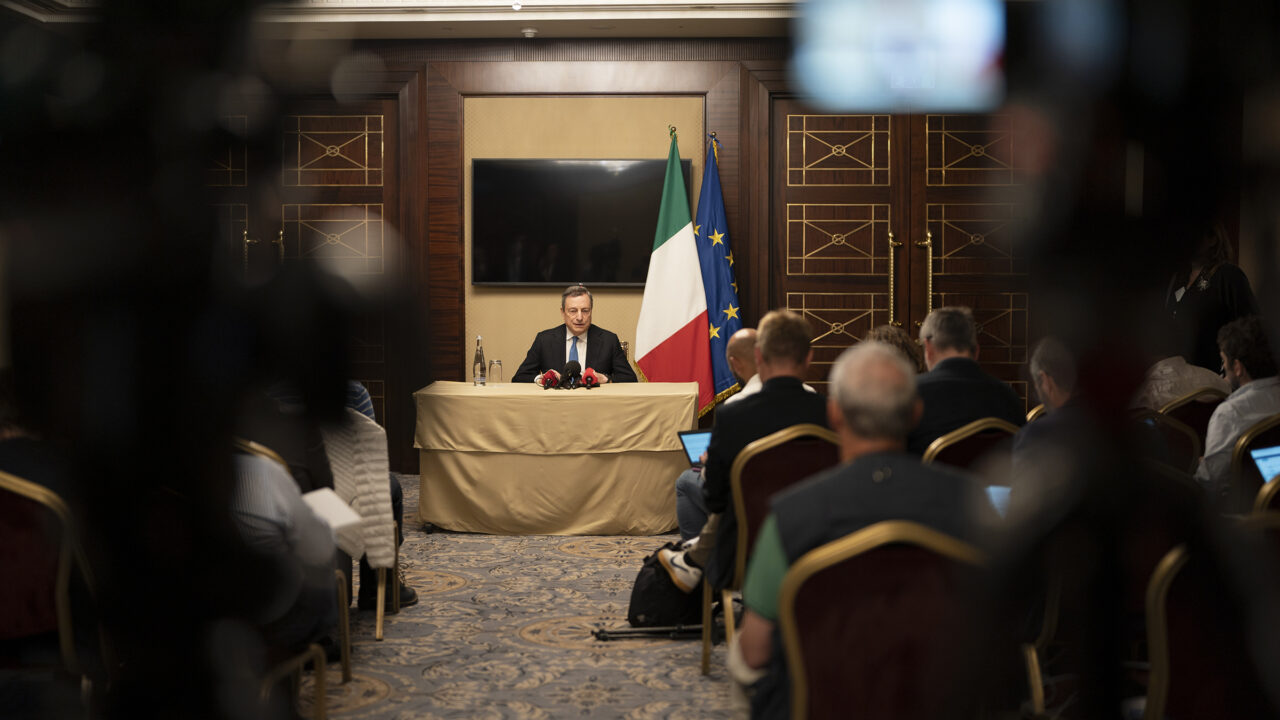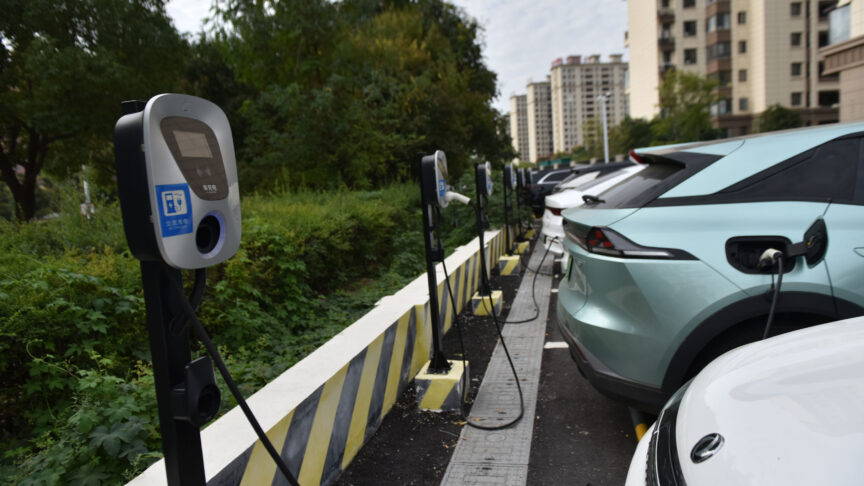Whatever it breaks: Draghi’s downfall and the future of Italy
Draghi always knew that he could not depend on some members of his ruling coalition. Yet his legacy of leadership in the EU could survive his departure
Italian Prime Minister Mario Draghi’s governing coalition has collapsed. His resignation saw the end of a government that provided stability in one of the most populist, Eurosceptic, pro-Putin, and pro-China parliaments in Europe. Given that Italy’s centre-left bloc is deeply divided, his government – which formed in response to the covid-19 crisis – was a fortunate anomaly.
Now, the European Union and its member states have another crisis to deal with: dependence on Russian energy and the threat to the bloc’s energy sovereignty. Draghi was the right person at the right time to respond to the fallout from the pandemic. And he proved equally adept at rising to these new challenges. This year, his policies have reduced Italy’s dependence on Russian gas from 40 per cent to less than 25 per cent – and he was heavily involved in plans to cut that to zero by the end of 2023. However, the three most pro-Russian parties in the Italian parliament – the League, Forza Italia, and the Five Star Movement – had other plans. And Italy is now poised for an election on 25 September, less than a year before Draghi’s term was set to end.
So, following 18 months of competent pandemic management, distribution of NextGenerationEU funds, oversight of the Italian G20 presidency, and adaptation in response to Russia’s war on Ukraine – Draghi’s race is over. Italy and the EU will miss his strong leadership as they struggle to deal with the energy crisis.
The war has caused political turmoil across the EU, especially in member states that are especially dependent on Russia’s gas or see the country as a security threat. Italy, for its part, seemed to be broadly coping with the situation.
Those who brought the government down have a great deal of responsibility for what happens next
However, the Five Star Movement decided last week to withdraw its support for the government. On the surface, this decision appeared to stem from Draghi’s commitment to continue supporting Ukraine militarily. Underneath, however, lurked Five Star Movement leader Giuseppe Conte, whom Draghi replaced as prime minister. Conte, now determined to use the war as a tool to maintain his own political relevance, is trying to salvage what is left of his party – which won 32 per cent of the vote in the 2018 election, but is now polling at just 11.7 per cent.
Draghi always knew that he could not depend on some members of his ruling coalition – especially the Five Star Movement and parts of Matteo Salvini’s League. He was also aware that this unreliability was a serious threat to Italy’s policy on Russia – and to his role at the European level and as a reliable ally of Germany and France. Italy’s leadership in the EU and cooperation with other powerful member states will be important in strengthening the foundations of the union after the war ends. Draghi would have played a key role in this. He would also have made a major contribution to EU policy in areas such as defence and security, in which his government showed both a commitment and a capacity to bolster European sovereignty.
Therefore, those who brought the government down have a great deal of responsibility for what happens next. Draghi’s successor will need to address the social and economic consequences of Russia’s war on Ukraine, including its effects on public opinion. ECFR’s recent polling indicates that the cost-of-living and energy crises are pushing EU citizens – especially Italians – to want to end the war as soon as possible, even if this meant that Ukraine would be forced to give up some of its territory.
Italian leaders should respond to this public pressure by working to become a credible supporter, and not just a partner, of pro-European economic and industrial powerhouses such as France and Germany. Indeed, Italy accounts for 17 per cent of the EU’s industrial production – more than any other member state aside from Germany. Italy can only fulfil its potential through close collaboration with Germany and France, which would benefit all Italians.
Thanks to Draghi’s leadership, Italy had finally begun to fulfil its potential by addressing its historical problems. He led Italian politics towards full support for Ukraine following the Russian invasion – despite fluctuating public opinion on the issue. Draghi even guided French President Emmanuel Macron and German Chancellor Olaf Scholz through their initial hesitancy to back Ukraine’s bid for EU membership. Furthermore, he played an important role in formulating EU sanctions on Russia – and, as discussed, in Italian and EU energy policy. During the political crisis that would eventually bring down his government, he spent two days in Algiers securing alternatives to Russian gas. This demonstrated a willingness to put the national interest before career that is increasingly rare among Italian politicians.
In practical terms, Draghi’s legacy will be in Rome’s progress towards standing alongside Paris and Berlin as leaders of the EU. Furthermore, he reassured the United States by stepping out of the Russian and Chinese shadows cast by the previous two governments. Finally, he pushed for the creation of the European Central Bank’s new “anti-fragmentation” tool, which is designed to address widening bond spreads in Europe and thereby support the Italian economy (among others).
As the old saying goes: no one is indispensable in politics. Yet the fall of Draghi’s government is an act of self-harm by his rivals. That said, his government set an example of pragmatism and realism for its successor to follow – and has left a legacy that would be challenging to dismantle. Unless populist and Eurosceptic parties take over, Draghi’s political orientation on Russia, Ukraine, transatlantic relations, and the EU will likely survive the difficult times ahead – not least thanks to a lack of credible alternatives.
The European Council on Foreign Relations does not take collective positions. ECFR publications only represent the views of their individual authors.



